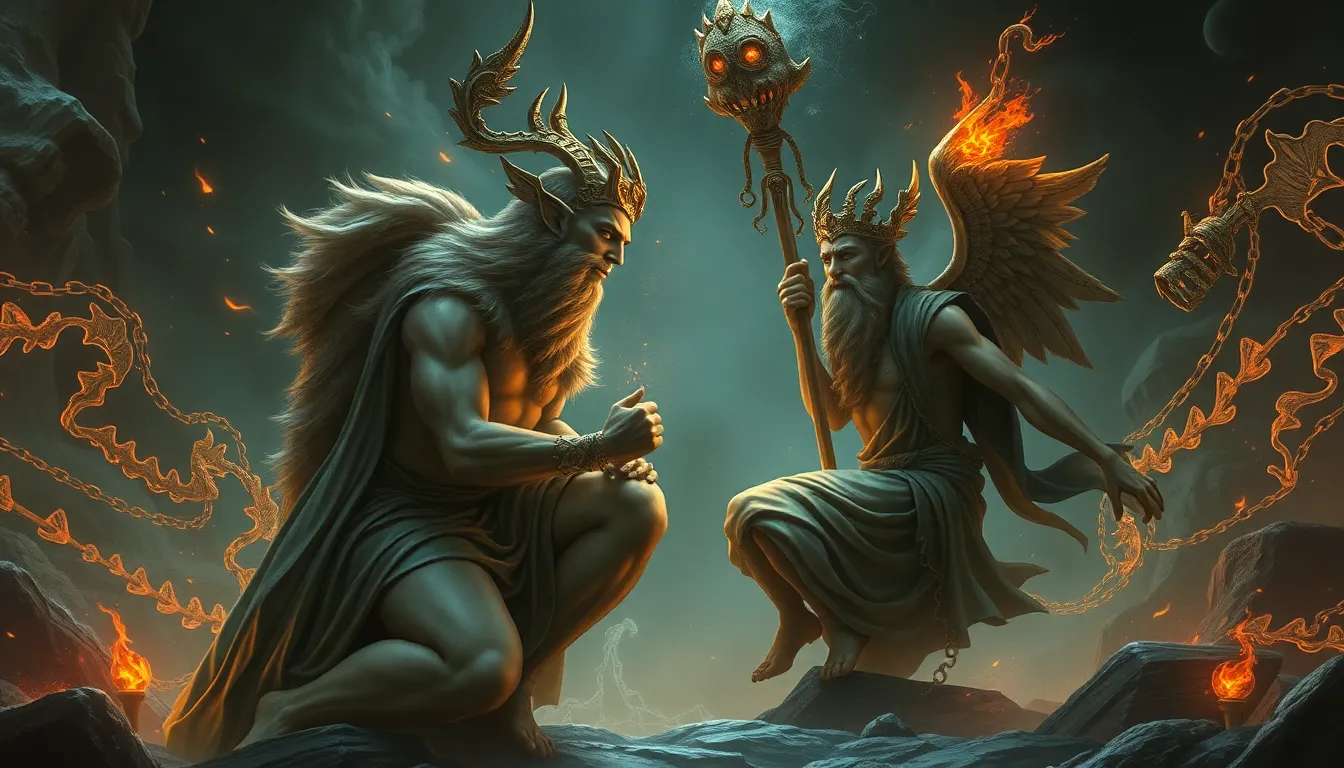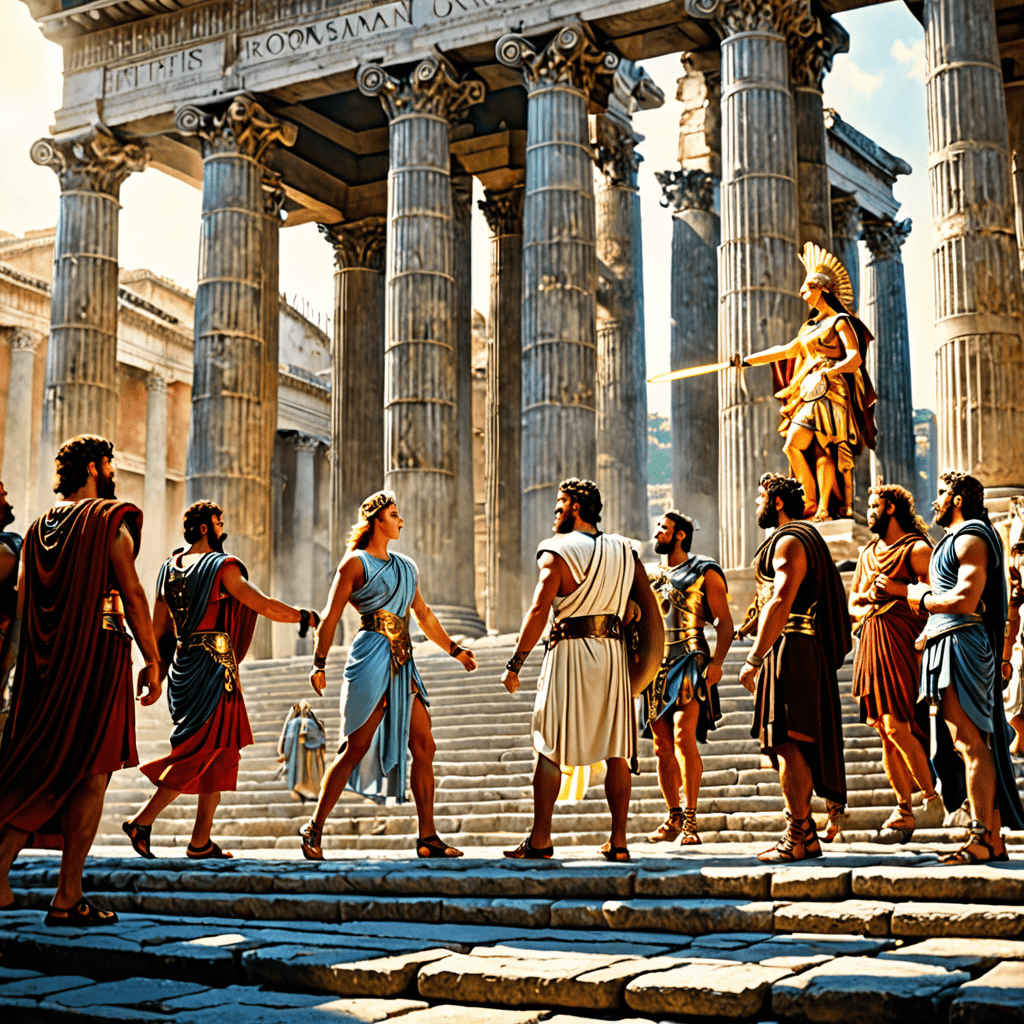Gods and Their Grievances: The Most Notorious Divine Punishments
Introduction to Divine Punishments
Throughout history, the concept of divine punishment has been a prevalent theme in numerous cultures. From ancient civilizations to modern interpretations, the idea that deities exert their power over humanity to enforce moral and ethical standards is a recurring motif. Divine punishments often arise from grievances, where gods react to human actions that defy the established order or ethical principles.
These narratives serve not only to entertain but also to instill lessons about morality, justice, and the consequences of one’s actions. Understanding how different cultures perceive divine retribution provides insight into their values and societal norms.
The Role of Gods in Human Affairs
In various mythologies, gods play an integral role in shaping human destiny. They are often depicted as powerful beings capable of both benevolence and wrath, influencing the lives of mortals based on their actions. The interactions between gods and humanity typically reflect a broader framework of divine justice, where moral order is paramount. This can manifest in several ways:
- Intervention: Gods may intervene directly in human affairs, rewarding virtuous behavior and punishing wrongdoing.
- Symbolism: Divine punishments often symbolize the consequences of human choices, serving as cautionary tales.
- Cosmic Order: Many mythologies emphasize maintaining balance in the universe, where divine retribution is a means to restore harmony.
Greek Mythology: Punishment from the Olympians
Greek mythology is rich with stories of divine punishment meted out by the Olympian gods. One of the most notable cases is that of Prometheus, who defied Zeus by stealing fire from the heavens to give to humanity.
As punishment, Zeus condemned Prometheus to eternal torment, where an eagle would feast on his liver daily, only for it to regenerate each night. This story illustrates the severe consequences of defying divine authority and showcases the theme of suffering as a result of human advancement.
Another poignant tale is that of Arachne, a skilled weaver who boasted that her skills surpassed those of Athena, the goddess of wisdom and war. Enraged by Arachne’s hubris, Athena transformed her into a spider, condemning her to weave for eternity. This narrative reflects the Greek belief in humility and respect for the gods.
Norse Mythology: The Consequences of Hubris
Norse mythology also emphasizes the theme of hubris and its repercussions. A notable example is the tale of Loki, the trickster god, who, after causing chaos among the gods, was bound by them as punishment. Loki’s binding symbolizes the dangers of deceit and the eventual accountability that follows reckless behavior.
Moreover, the giants, often in conflict with the gods, faced retribution for their transgressions against divine order. The gods’ battles with the giants serve as allegories for the struggle between order and chaos in the universe.
Hindu Mythology: Divine Wrath and Cosmic Order
In Hindu mythology, divine punishment is often linked to the concepts of karma and dharma. The story of Ravana, the ten-headed demon king, illustrates this principle. Ravana’s abduction of Sita, the wife of Lord Rama, led to his eventual downfall in battle. Rama’s victory is seen as a restoration of righteousness, emphasizing that those who act against dharma will face divine consequences.
The significance of karma in Hindu thought underscores that every action has repercussions, often enforced through divine intervention. This belief system reinforces moral behavior and accountability in human actions.
Egyptian Mythology: The Balance of Ma’at
In ancient Egypt, the concept of Ma’at represented truth, balance, and cosmic order. The judgment of souls by Osiris, the god of the afterlife, is a fundamental aspect of Egyptian mythology. Souls were weighed against the feather of Ma’at, and those who failed the test faced dire consequences, often depicted as being devoured by Ammit, the devourer of the dead.
Additionally, the tale of Sekhmet revolves around her wrath against humanity for their disobedience. To quell her rage, the gods tricked her into drinking beer dyed red to resemble blood, leading to her slumber and the restoration of balance. This story highlights the importance of maintaining harmony with the divine.
Mesopotamian Myths: The Anger of the Gods
Mesopotamian mythology is filled with examples of divine anger and punishment. In the Epic of Gilgamesh, the god Enlil unleashes a great flood to punish humanity for their noise and chaos. This narrative parallels other flood myths and serves as a reminder of the gods’ power and the consequences of human transgressions.
The flood narrative is a powerful illustration of divine retribution, where the gods cleanse the earth of its sins, emphasizing the fragile relationship between humanity and the divine.
Indigenous Beliefs: Nature Spirits and Their Grievances
Indigenous cultures often perceive divine punishment through the lens of nature and its spirits. Many believe that the natural world is imbued with spiritual significance, and grievances arise when humanity fails to respect it. Examples include:
- Native American traditions: Many tribes believe that the earth is a living entity, and neglect or harm to the environment invokes the wrath of nature spirits.
- Australian Aboriginal beliefs: Stories of the Dreamtime emphasize the interconnectedness of life and the consequences of disrupting harmony with nature.
These narratives reflect the deep-seated belief in reciprocity between humans and the environment, highlighting the importance of stewardship and respect.
Modern Interpretations of Divine Punishment
In contemporary literature and media, the themes of divine punishment continue to resonate. Modern interpretations often reinterpret ancient grievances to address current moral dilemmas. Works ranging from novels to films explore the complexities of justice and retribution, often blurring the lines between good and evil.
The relevance of divine punishment in today’s moral discussions invites reflection on ethical behavior, accountability, and the consequences of our actions in a modern context.
Conclusion: The Lessons of Divine Grievances
The narratives of divine punishments across cultures offer profound moral and ethical implications. They serve as cautionary tales, reminding humanity of the consequences of hubris, deceit, and moral transgressions. These stories shape cultural values and influence human behavior, fostering a sense of accountability and respect for the greater cosmic order.
By reflecting on these ancient grievances, we can better understand our place within the tapestry of existence and the importance of living in harmony with the moral principles upheld by the divine.



